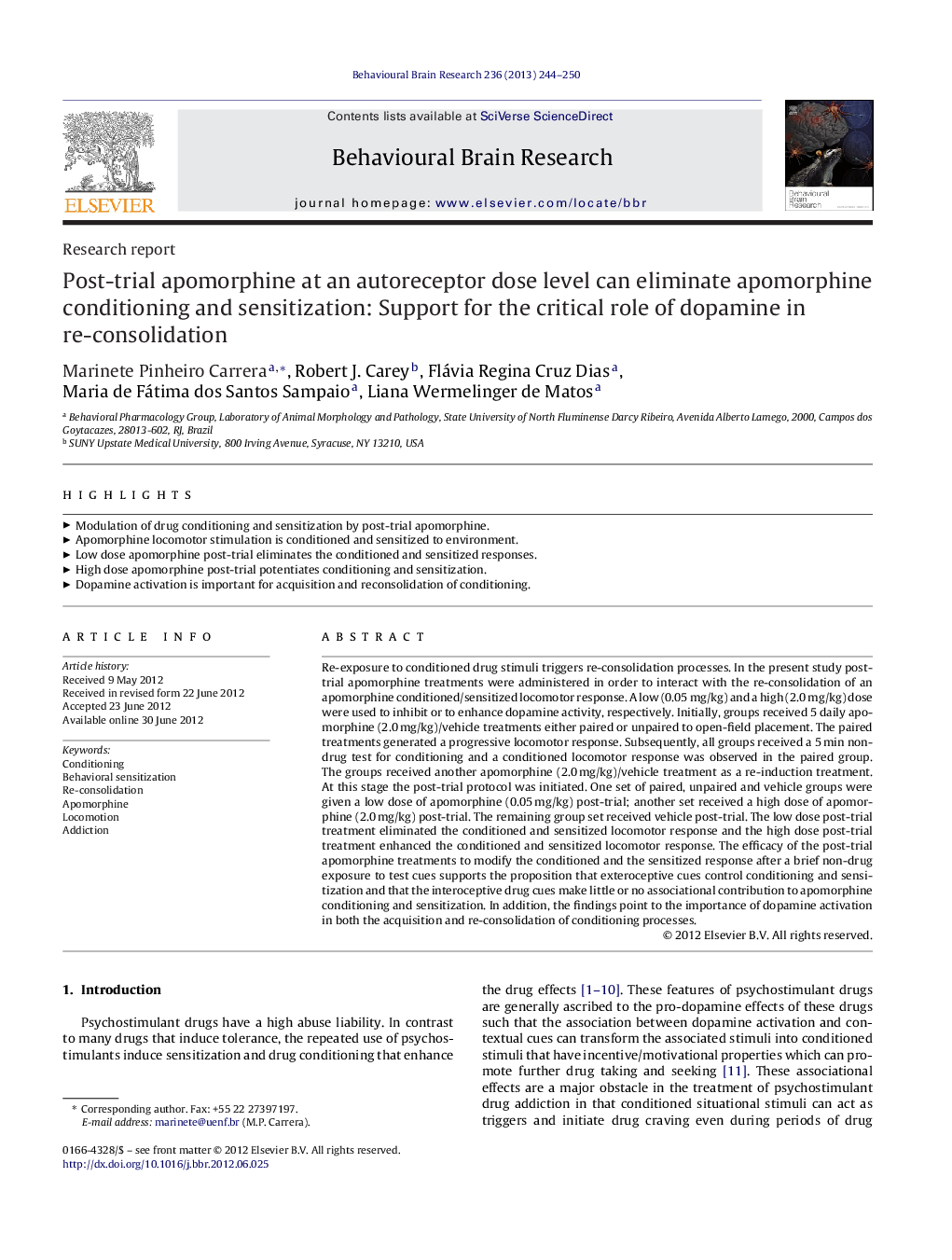| Article ID | Journal | Published Year | Pages | File Type |
|---|---|---|---|---|
| 6259484 | Behavioural Brain Research | 2013 | 7 Pages |
Re-exposure to conditioned drug stimuli triggers re-consolidation processes. In the present study post-trial apomorphine treatments were administered in order to interact with the re-consolidation of an apomorphine conditioned/sensitized locomotor response. A low (0.05Â mg/kg) and a high (2.0Â mg/kg) dose were used to inhibit or to enhance dopamine activity, respectively. Initially, groups received 5 daily apomorphine (2.0Â mg/kg)/vehicle treatments either paired or unpaired to open-field placement. The paired treatments generated a progressive locomotor response. Subsequently, all groups received a 5Â min non-drug test for conditioning and a conditioned locomotor response was observed in the paired group. The groups received another apomorphine (2.0Â mg/kg)/vehicle treatment as a re-induction treatment. At this stage the post-trial protocol was initiated. One set of paired, unpaired and vehicle groups were given a low dose of apomorphine (0.05Â mg/kg) post-trial; another set received a high dose of apomorphine (2.0Â mg/kg) post-trial. The remaining group set received vehicle post-trial. The low dose post-trial treatment eliminated the conditioned and sensitized locomotor response and the high dose post-trial treatment enhanced the conditioned and sensitized locomotor response. The efficacy of the post-trial apomorphine treatments to modify the conditioned and the sensitized response after a brief non-drug exposure to test cues supports the proposition that exteroceptive cues control conditioning and sensitization and that the interoceptive drug cues make little or no associational contribution to apomorphine conditioning and sensitization. In addition, the findings point to the importance of dopamine activation in both the acquisition and re-consolidation of conditioning processes.
⺠Modulation of drug conditioning and sensitization by post-trial apomorphine. ⺠Apomorphine locomotor stimulation is conditioned and sensitized to environment. ⺠Low dose apomorphine post-trial eliminates the conditioned and sensitized responses. ⺠High dose apomorphine post-trial potentiates conditioning and sensitization. ⺠Dopamine activation is important for acquisition and reconsolidation of conditioning.
